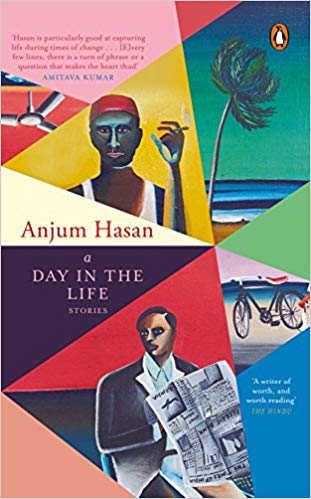Anjum Hasan is exceptional. The imagery in her stories comes at you so fast that you gasp as you try to absorb it all—and every image is familiar—but in her stories they become poetry: ‘The phrase that comes to mind is–bursting into life. But spring is a gradual unfolding: day-by-day colour seeps back into the land, expressed in crocuses of lilac and gold. The oaks will fatten with leaves by slow degrees. Will they burst into life? Will the buds on the apple trees?’
Open any page, and read any paragraph—the lucid beauty of her language will whet your imagination. ‘She was chatting with a haggard, smiling man, the seller of a pushcart full of white chrysanthemums, pink begonias, red impatiens and the single, yellow, limp-necked rose in a mud-streaked pot that her mother thrust at Gulfam.’
But her stories offer much more than just the language. Each character is etched sharp; so in the short space of a few pages you get to know each person deeply. A mother whose son is moving away from his adopted country to his native one. The son, ‘…shy of the mother who is both more and less than a mother.’ A young newly wed girl in a misty, rain-filled world who is suddenly ‘…looking into his familiar eyes and feeling she doesn’t really know (her husband).’ A World War II batman who wants to throw a lavish party in memory of his English Captain, seventy years after the war is over. A young Luftan Mian walking to Benares with an older friend, in anticipation of acquiring the famous Benarasi sari for Mumtaz, his bride to be, who lives ‘Somewhere on the blank horizon, beyond the small jheel they can see shimmering before the slowly rising sun.’ Anjum Hasan’s writing is powerful.

